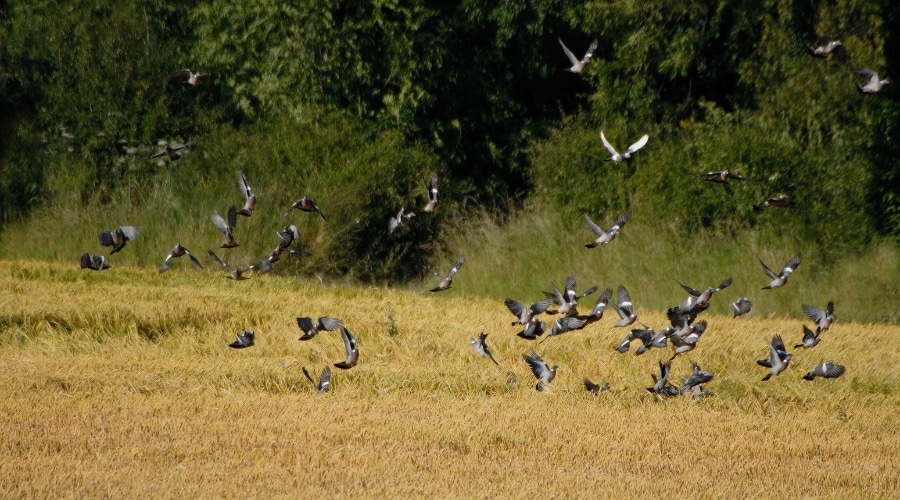
Shotguns returned following pigeon shooting seizure
BASC has assisted with the return of shotguns to a group of pigeon shooters following their inappropriate seizure by Greater Manchester Police.
Get information on the legal shooting season for mammals and birds in the UK.
Learn about our current conservation projects and how you can get involved.
Comprehensive information and advice from our specialist firearms team.
Everything you need to know about shotgun, rifle and airgun ammunition.
Find our up-to-date information, advice and links to government resources.
Everything you need to know on firearms law and licensing.
All the latest news and advice on general licences and how they affect you.
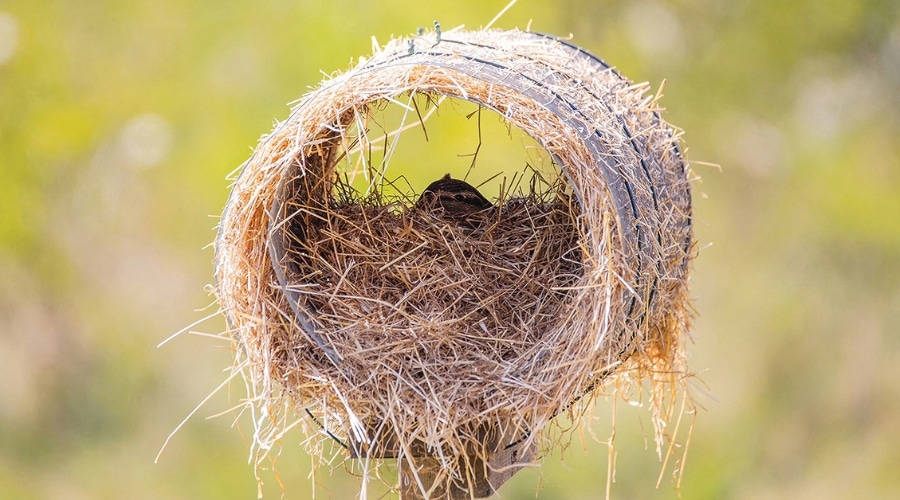
Duck nest tubes are a conservation success story, says Sophie Stafford and according to data collated by BASC and the Waterfowlers’ Network.
Since 2021 members of the shooting community have been playing a vital role in an international citizen science project set up by the Waterfowlers’ Network in 2021.
The duck nest tube project aims to monitor the breeding success and usage of artificial nest structures, such as nesting tubes, nest boxes, and breeding baskets.
BASC’s project primarily focuses on the installation and monitoring of nest tubes, through which we hope to improve the breeding success of wild mallard populations across their flyway.
In the first two years of the project (2021-22), we have received data on 400 nest tubes across 93 sites in the UK, detailing some promising results.
To date, we have recorded an occupancy rate of 46% overall, and of those occupied, over 90% hatched successfully.
In both 2021 and 2022, first year nests had slightly lower occupancy and success rates than the above figure, but this is normal so don’t lose hope in your first year!
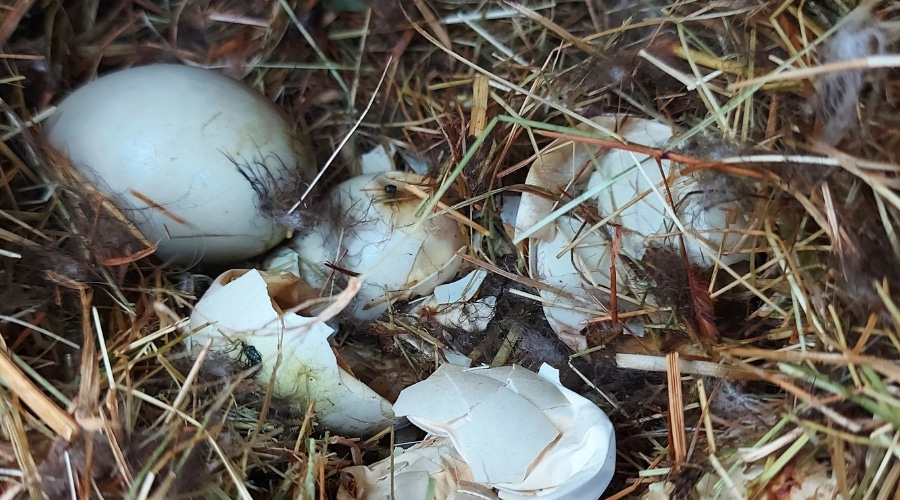
Citizen science projects such as this, rely on you, the shooting community – or anyone with an interest in conservation – to help ensure that they are a success and have a positive, sustainable impact.
Despite having increased from the 1960s-2000s, breeding mallard populations are in decline, dropping by five per cent in the last ten years. It is vital that we do something now to mitigate any further losses for the species.
Although the duck nest tube project focuses on mallard in the UK, we do see several other species occasionally using the structures, including coots, moorhens, shovelers, gadwall, mandarins and teal.
To support the continued sustainable shooting of mallard, we must protect our wild populations. This means implementing effective conservation methods and collecting data to help us better understand mallard breeding success and how we can help.
In addition to collecting data on nest occupancy rates and the hatching success of different duck species, we also record information on various environmental factors, such as:
The more information we gather, the more we can understand about how successful duck nest tubes are as a conservation method, plus the factors which may have a bearing on this success.
If the duck nest tube project sounds like something you’d like to get involved in, it’s very straightforward. Here’s what you need to do:
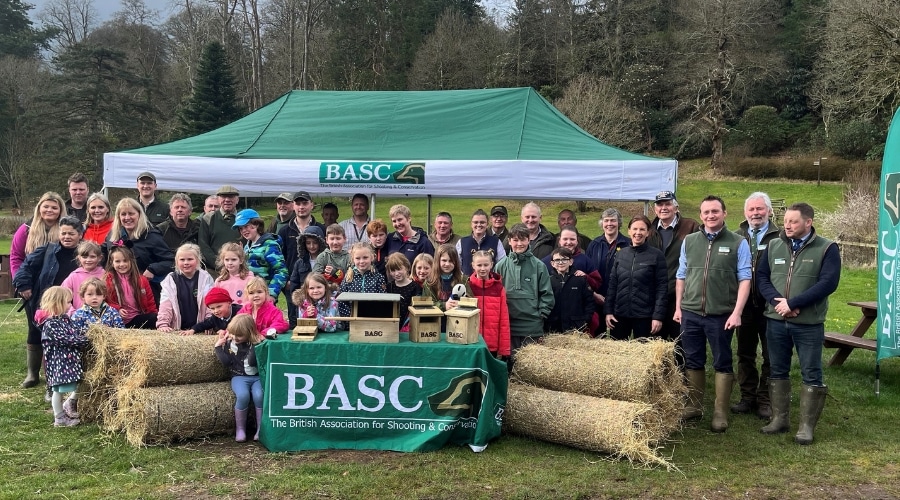
From schools, to colleges, to moorland groups and wildfowling clubs, BASC teams from around the country have been working tirelessly to help get more duck nest tubes up across the UK. Below is a taste of some of the work that’s been going on.
BASC regional officer Rob Newton spent a day installing duck nest tubes with Tracy Johnson from the Nidderdale Moorland Group and some of the ‘keepers from various Nidderdale Estates. The nest tubes were sited on a variety of upland and low ground ponds.
Game and wildlife management students at Reaseheath College made their own duck nest tubes after spending a day learning about why they are important, how to construct them and where best to site them.
Members of the South Humber Area Joint Council (SHAJC) and BASC took part in a workshop to build and install tubes on several ponds and lakes surrounding Burton Salmon.
Students at Askham Bryan College worked together at a workshop led by BASC North to build 30-plus duck nest tubes.
Thirty-one pupils from St Bega’s C of E School in Eskdale built bird boxes, duck nest tubes and planted trees at an event hosted at Muncaster Castle. The children were also treated to owl flight displays during the day, which was organised by Muncaster staff and BASC.
BASC East regional officers Ryan Darby and Mal Greenleaf attended the Fenland Wildfowlers Association AGM. As well as discussing various shooting and wildfowling topics, they introduced the duck nest tube project to members, including an interactive session on building the tubes.
Twenty year five pupils from Thorney Island Primary School in West Sussex took part in an outdoor education experience which saw them build duck nest tubes, go on a bug hunt and learn about the different birds and mammals that inhabit the island. A total of 16 duck nest tubes were built during the day, which was organised by Chichester Wildfowlers Association and BASC.

BASC has assisted with the return of shotguns to a group of pigeon shooters following their inappropriate seizure by Greater Manchester Police.
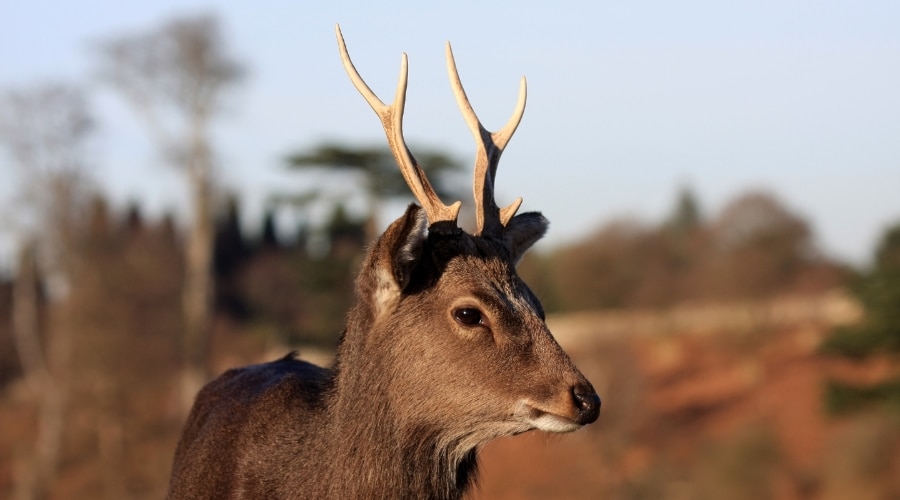
BASC has added to its portfolio of deer stalking opportunities for members with the opening of a new scheme in Lancashire.
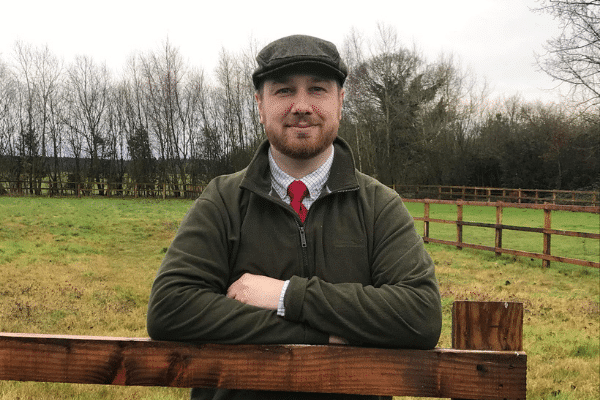
BASC appoint new firearms officer for the East of England region which is set to include Hertfordshire and Bedfordshire.
Sign up to our weekly newsletter and get all the latest updates straight to your inbox.
© 2023 British Association for Shooting and Conservation. Registered Office: Marford Mill, Rossett, Wrexham, LL12 0HL – Registered Society No: 28488R. BASC is a trading name of the British Association for Shooting and Conservation Limited which is authorised and regulated by the Financial Conduct Authority (FCA) under firm reference number 311937.
If you have any questions or complaints about your BASC membership insurance cover, please email us. More information about resolving complaints can be found on the FCA website or on the EU ODR platform.
This website uses cookies so that we can provide you with the best user experience possible. Cookie information is stored in your browser and performs functions such as recognising you when you return to our website and helping our team to understand which sections of the website you find most interesting and useful.
Strictly Necessary Cookie should be enabled at all times so that we can save your preferences for cookie settings.
If you disable this cookie, we will not be able to save your preferences. This means that every time you visit this website you will need to enable or disable cookies again.
This website uses Google Analytics to collect anonymous information such as the number of visitors to the site, and the most popular pages.
Keeping this cookie enabled helps us to improve our website.
Please enable Strictly Necessary Cookies first so that we can save your preferences!
More information about our Cookie Policy